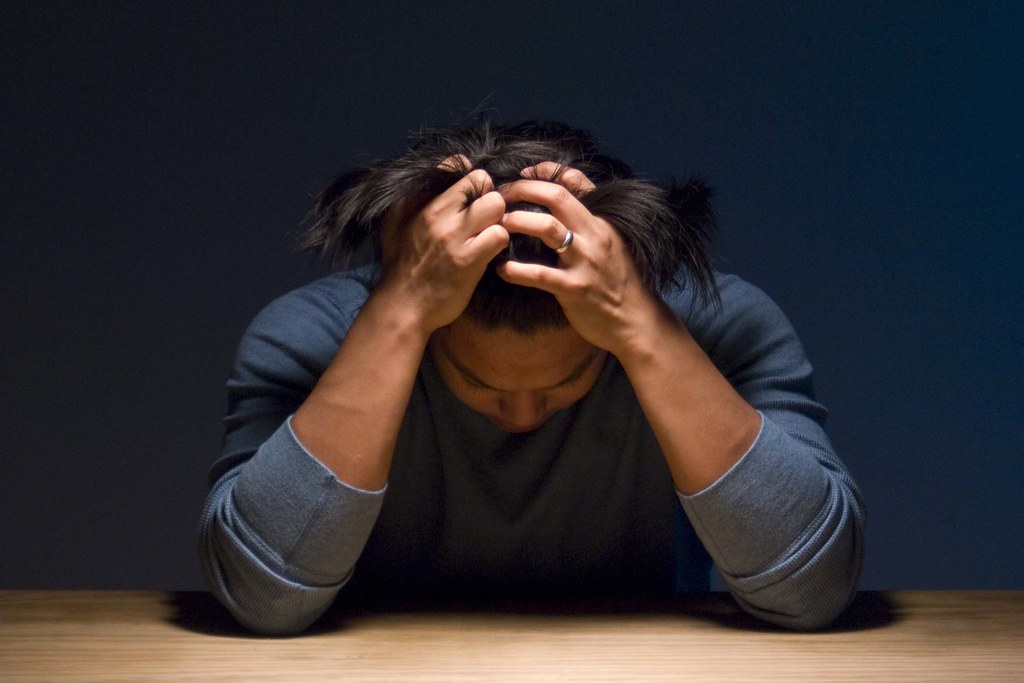Anxiety is a common mental health condition that can cause a wide range of physical and emotional symptoms, including fatigue. Fortunately, there are many effective anxiety fatigue treatment options available. This blog will explore various therapy and medication treatment, as well as self-care strategies that can help reduce anxiety-related fatigue and improve overall well-being. We will also discuss the benefits of seeking help for anxiety fatigue.
Contents
What Is Anxiety Fatigue?
 Anxiety fatigue is a feeling of exhaustion that’s often caused by chronic anxiety or stress. It’s a condition where a person feels worn out, mentally and physically, due to constant worries and fears that are associated with anxiety. The persistent state of tension and nervousness can drain a person’s energy, leaving them feeling drained, sluggish, and unable to focus. Anxiety fatigue can also lead to difficulty sleeping, loss of appetite, and even depression. It is important to address anxiety and its symptoms as soon as possible to prevent the development of anxiety fatigue.
Anxiety fatigue is a feeling of exhaustion that’s often caused by chronic anxiety or stress. It’s a condition where a person feels worn out, mentally and physically, due to constant worries and fears that are associated with anxiety. The persistent state of tension and nervousness can drain a person’s energy, leaving them feeling drained, sluggish, and unable to focus. Anxiety fatigue can also lead to difficulty sleeping, loss of appetite, and even depression. It is important to address anxiety and its symptoms as soon as possible to prevent the development of anxiety fatigue.
Is Anxiety Fatigue Normal?
Anxiety fatigue is a common symptom experienced by individuals with anxiety disorders. It can impact energy levels, productivity, and overall quality of life. However, the good news is that anxiety fatigue is treatable. Anxiety fatigue treatment options may include a variety of therapy and medication options, as well as self-care strategies. Seeking professional help and developing effective coping strategies can help individuals with anxiety fatigue improve their energy levels and reduce anxiety symptoms.
Therapy Treatment For Anxiety Fatigue
Here are some therapy treatment options for anxiety fatigue:
Cognitive Behavioral Therapy (CBT)
Cognitive Behavioral Therapy (CBT) is a type of talk therapy that helps individuals identify and change negative thoughts and behaviors related to anxiety. Through CBT, individuals can learn coping mechanisms to manage anxiety symptoms and ultimately break the continuous cycle of anxiety. This can help them prevent fatigue or exhaustion.
Exposure Therapy
Exposure therapy is a type of therapy that involves gradually exposing individuals to anxiety-provoking situations in a safe and controlled environment. The goal of exposure therapy is to desensitize individuals to their anxiety triggers and reduce anxiety symptoms. This can ultimately improve energy levels and the motivation to deal with future anxiety symptoms.
Acceptance and Commitment Therapy (ACT)
Acceptance and Commitment Therapy (ACT) is a type of therapy that focuses on accepting difficult emotions and experiences rather than trying to eliminate them. Through acceptance, individuals can learn to respond to anxiety symptoms more effectively and adaptively. This can avoid the wastage of energy for unwanted worries and fears. Ultimately, the patient is left with more energy to spend on some productive work.
Mindfulness-Based Therapy
Mindfulness-based therapy is an approach that emphasizes being present at the moment and observing thoughts and feelings without judgment. Through mindfulness techniques like Yoga and Meditation, individuals can learn to better manage their anxiety symptoms and improve their overall mood and energy levels. This therapy can help promote relaxation and reduce stress. Hence, it is extremely helpful to prevent anxiety fatigue.
Medication Treatment for Anxiety Fatigue
 Medication can be a helpful treatment option for individuals experiencing anxiety fatigue. Antidepressants and anti-anxiety medications, such as selective serotonin reuptake inhibitors (SSRIs) or benzodiazepines, may be prescribed by a healthcare provider to help manage anxiety symptoms. Beta-blockers can also be prescribed to help reduce physical symptoms of anxiety, such as rapid heart rate or shaking.
Medication can be a helpful treatment option for individuals experiencing anxiety fatigue. Antidepressants and anti-anxiety medications, such as selective serotonin reuptake inhibitors (SSRIs) or benzodiazepines, may be prescribed by a healthcare provider to help manage anxiety symptoms. Beta-blockers can also be prescribed to help reduce physical symptoms of anxiety, such as rapid heart rate or shaking.
It is important to work closely with a healthcare provider to determine the best medication and dosage for individual needs. Medication can be helpful in conjunction with therapy and lifestyle changes, but it’s important to note that medication alone is not typically recommended as a long-term solution for anxiety fatigue. Regular monitoring and communication with a healthcare provider are important when taking medication for anxiety fatigue.
Self-Care Treatment For Anxiety Fatigue
Here are some self-care options for anxiety fatigue:
Exercise
Regular exercise can be a helpful self-care option for individuals experiencing anxiety fatigue. Exercise can reduce stress, improve mood, and boost energy levels. Even low-intensity activities like walking or stretching can be beneficial. It’s important to find an exercise routine that works for individual needs and preferences.
Mindfulness Practices
Mindfulness meditation, yoga, or deep breathing exercises can help promote relaxation and reduce anxiety symptoms. These practices can promote relaxation and reduce anxiety symptoms by helping individuals focus on the present moment and observe their thoughts and feelings without judgment. It’s important to find a mindfulness practice that works for individual needs and preferences and to practice regularly to see the most benefit.
Sleep Hygiene
 Getting adequate sleep and establishing a regular sleep routine can be important self-care options for individuals experiencing anxiety and fatigue. Good sleep hygiene practices include avoiding caffeine and electronics before bed, establishing a regular sleep schedule, and creating a comfortable sleep environment. Getting enough restful sleep can improve energy levels and reduce anxiety symptoms, making it an important part of overall self-care.
Getting adequate sleep and establishing a regular sleep routine can be important self-care options for individuals experiencing anxiety and fatigue. Good sleep hygiene practices include avoiding caffeine and electronics before bed, establishing a regular sleep schedule, and creating a comfortable sleep environment. Getting enough restful sleep can improve energy levels and reduce anxiety symptoms, making it an important part of overall self-care.
Social Support
Connecting with supportive friends and family members can be an important self-care option for individuals experiencing anxiety fatigue. Social support can reduce stress and improve mood by providing a sense of comfort and belonging. Engaging in activities with others, such as going for a walk or having a conversation over the phone, can also be beneficial. It’s important to seek out social connections that are supportive and positive to see the most benefit.
Hobbies and Leisure Activities
Engaging in enjoyable hobbies or leisure activities can be an important self-care option for individuals experiencing anxiety fatigue. These activities can provide a sense of enjoyment and relaxation, reducing stress and improving overall well-being. Finding activities that bring a sense of joy or accomplishment can be particularly helpful in combating anxiety-related fatigue.
Time Management
Effective time management strategies can be an important self-care option for individuals experiencing anxiety fatigue. Learning to prioritize tasks, set realistic goals, and manage time effectively can reduce stress and improve productivity, leading to a greater sense of accomplishment and reduced anxiety symptoms. It’s important to find time management strategies that work for individual needs and to practice them regularly to see the most benefit.
Nutrition
 Eating a healthy diet and staying hydrated can be important self-care options for individuals experiencing anxiety fatigue. Nutrient-rich foods like fruits, vegetables, and whole grains can provide the energy. Staying hydrated by drinking enough water can also help improve energy levels and reduce anxiety symptoms. It’s important to work with a healthcare provider or registered dietitian to create a nutrition plan that meets individual needs and preferences.
Eating a healthy diet and staying hydrated can be important self-care options for individuals experiencing anxiety fatigue. Nutrient-rich foods like fruits, vegetables, and whole grains can provide the energy. Staying hydrated by drinking enough water can also help improve energy levels and reduce anxiety symptoms. It’s important to work with a healthcare provider or registered dietitian to create a nutrition plan that meets individual needs and preferences.
Benefits Of Anxiety Fatigue Treatment
Here are some potential benefits of anxiety fatigue treatment:
- Improved energy levels: Treating anxiety fatigue can help improve energy levels, reducing feelings of tiredness and exhaustion.
- Reduced anxiety symptoms: Effective treatment can help reduce symptoms of anxiety, such as racing thoughts or feelings of panic.
- Improved mood: Treating anxiety fatigue can help improve overall mood, reducing feelings of sadness or hopelessness.
- Improved productivity: Improved energy levels and reduced anxiety symptoms can lead to increased productivity and a greater sense of accomplishment.
- Better quality of life: Treating anxiety fatigue can improve overall physical and mental well-being, leading to a better quality of life.
- Increased sense of control: Learning effective coping strategies can increase feelings of control over anxiety symptoms and reduce feelings of helplessness or overwhelm.
- Better relationships: Reduced anxiety symptoms and improved mood can lead to improved relationships with friends and family members.
Conclusion
In conclusion, anxiety fatigue can be a challenging symptom to manage, but there are many effective treatment options available. By seeking treatment and developing effective coping strategies, individuals with anxiety fatigue can experience improved energy levels, reduced anxiety symptoms, and a better quality of life. It’s important to work with a healthcare provider or mental health professional to determine the best course of treatment for individual needs and preferences.
For more information, please contact MantraCare. Anxiety is a common mental health condition characterized by persistent feelings of worry, fear, and apprehension. If you have any queries regarding Online Anxiety Counseling experienced therapists at MantraCare can help: Book a trial Anxiety therapy session.


